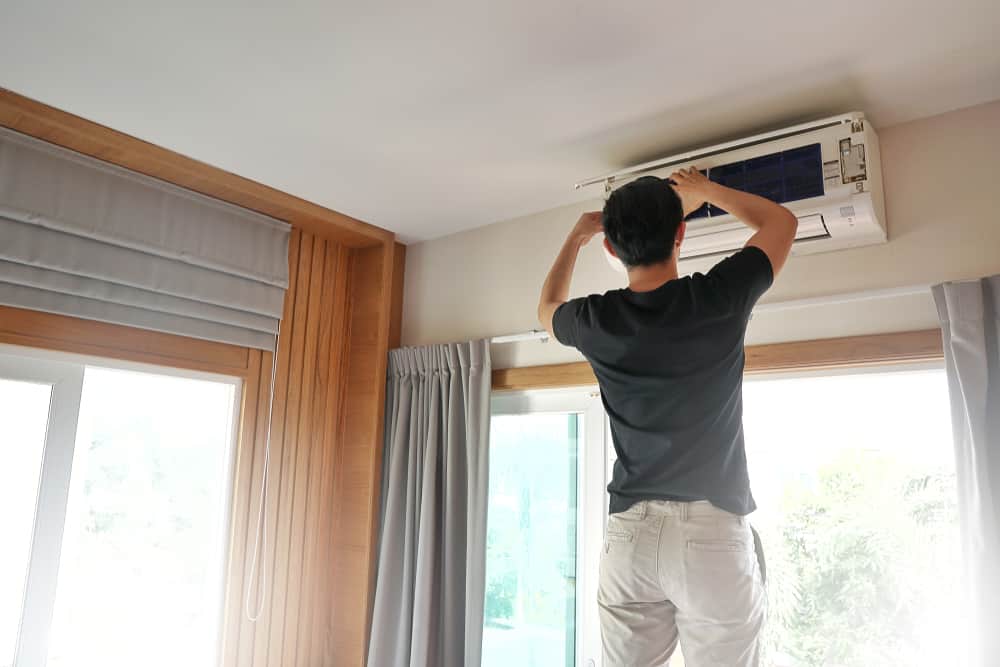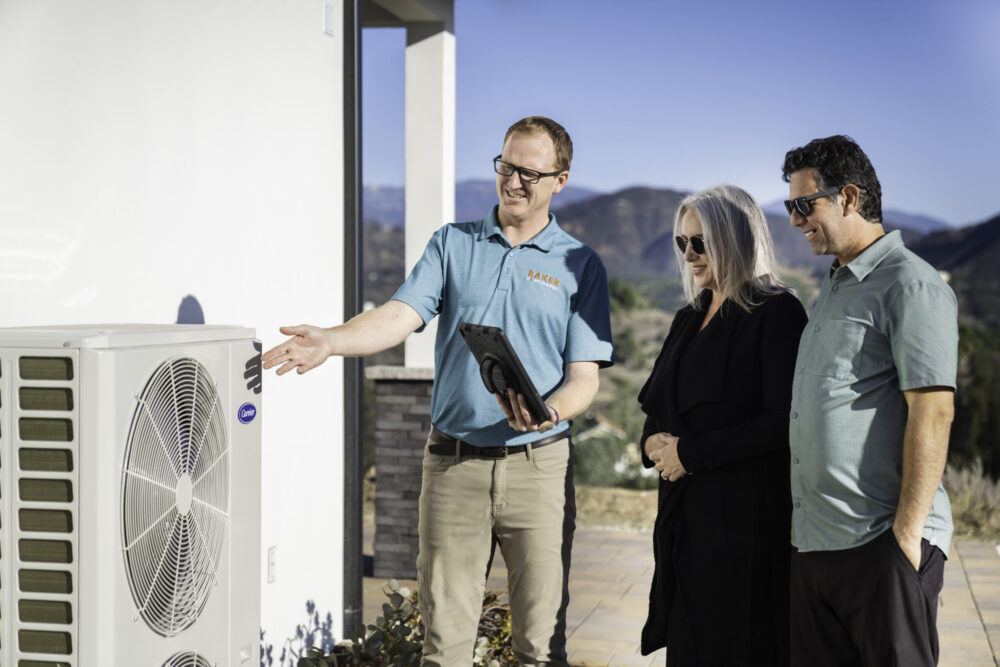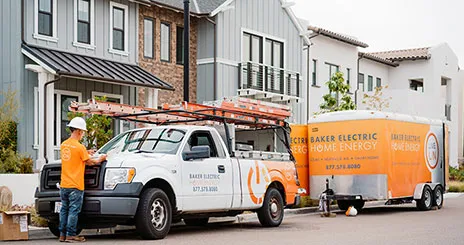
In the peak of summer, you might recognize how frequently you’ve taken your home air conditioning unit for granted in the past. And on especially blistering days, you might even think of your AC as a prized possession—-one that you definitely don’t want breaking down.
However, even with regular maintenance, you might still encounter some issues with your AC system from time to time. The good news is that YOU can fix some of the simpler issues by yourself and leave the complex problems to the professionals. In this blog post, we discuss some common problems with home air conditioning and troubleshooting tips you can try before calling a technician.
Air Conditioning Troubleshooting: Common Fixes
Let’s take a look at some of the most commonly found air conditioning issues and the troubleshooting tips you can try yourself before calling in the professionals.
Why Doesn’t My AC Turn On?
On hot days, if your air conditioner refuses to turn on, you should first check your fuse box to check for a tripped circuit. With high outdoor temperatures, the cooling system runs more frequently and draws more electricity than usual, which can cause circuit breakers to trip.
If there is no problem with the fuse box, there might be underlying problems—faulty wiring or malfunctioning components such as a dirty condenser coil, dirty air filter, or others that are drawing more electricity than they should. In such cases, you should call your HVAC technician right away.
Why Is My AC Unit Leaking?
Water leakage is one of the most common home AC problems. The cause might be an overflowing pan that is meant to catch the water. A quick look at the corners of the condenser drain pan should tell you if there is a leak or a hole. If so, you need to order a new drain pan and book an appointment with an HVAC professional.
If the leakage is not due to an overflowing pan, chances are that your HVAC unit’s condensate line has been clogged, causing excess condensation to leak out of the unit. A refrigerant leak indicates a bigger problem that could damage the compressor. In such scenarios, turn off the unit and call in the technician.
Such leaks—especially when left unnoticed—often lead to the next common air conditioning problem: mold.
Why Does My HVAC Unit Smell Bad?
A stale, musty smell is the most common funk emitted by ACs due to accumulated water in the drain pipe or drip lines, which can result in fungus or mildew growth. You can empty the drain pan regularly and wipe it down with a basic household cleaner to see if the smell goes away.
Because mold spores can be found everywhere, it’s difficult to eradicate them completely. And unless you or another family member has a mold allergy or asthma, most are fairly harmless. The obvious exception is black mold, which is most definitely harmful, but also requires a humid environment in which to thrive.
If you see evidence of mold on your vents or in your ducts, no matter how harmless it may truly be, your AC can still spread it throughout your home as cool air blows across existing spores. The inside of an average air conditioning unit is generally inhospitable to mold growth, and SoCal’s low humidity is also unlikely to help it spread. For these reasons, it’s important to call a professional technician to check for any leaks that could cause mold growth.
NOTE: Do NOT attempt to clean or remove mold yourself!
The Environmental Protection Agency recommends turning off air conditioning units suspected of mold growth until they can be fully remediated. Certified technicians will also need to handle related problems, such as damp or dirty filters that need to be disposed of and replaced.
Why is My AC Unit Blowing Hot Air?
If your home HVAC system is blowing warm air on a hot, summer day instead of dispersing cool air, you should take a quick look before calling a certified professional. Check to see if you’ve set thermostat settings correctly, with the temperature on ‘cool’ mode and fan settings on ‘auto’ mode. When your fan is set to ‘on’ (instead of auto), it blows air through the vents whether actively cooling your home or not. This means the unit will blow hot air when taking a break.
If the thermostat settings are correct and the AC unit is still blowing hot air, it could be due to dirty evaporator coils, low refrigerant levels, or lack of power to the outdoor unit. All of these issues require a professional to resolve them.
Why Does Your AC Make Noise?
Rattling, hissing, or clanging noises from an AC unit should never be ignored. If you have an outdoor HVAC unit with leaves and twigs stuck inside, your HVAC system might make a rattling sound. You can take care of this issue on your own by removing the metal shielding surrounding the unit and cleaning the build-up of dust, dirt, and leaves.
If the filter is not fitted correctly and the unit loses air through leaking ducts, your AC could make hissing sounds. Clanging or banging noises are usually the result of some loose parts inside the unit. Such air conditioning troubleshooting is best left to the HVAC experts.
Why is the Condensor Coil Freezing?
You should check regularly for ice on condenser coils, especially during the summer. Condenser coil freezing can occur due to several reasons, including dirty air filters, broken fans, blocked condensate lines, malfunctioning thermostats, and refrigerant leaks. Before calling a professional, you should immediately switch off the unit and wait for the ice to melt to prevent compressor failure.
NOTE: NEVER cut or chip off the ice—it might damage the coil.
These common home air conditioning troubleshooting tips work best when adhering to a regular preventive maintenance schedule, including an annual inspection from an HVAC specialist before you start using your system in the summer or turn it off in the fall.
Home Air Conditioning Troubleshooting with A Trusted HVAC Professional
Baker Home Energy is a San Diego-based team of certified and reputed air conditioning specialists providing cost-efficient heating and cooling solutions for your home. Whether installing a new HVAC system, repairing an old one, or performing routine maintenance, our family-friendly service technicians offer unparalleled customer service. The seasonal air conditioning tune-up and safety inspection performed by our qualified and experienced engineers help you troubleshoot all home AC problems, prevent unforeseen damages, and reduce your utility bills.



